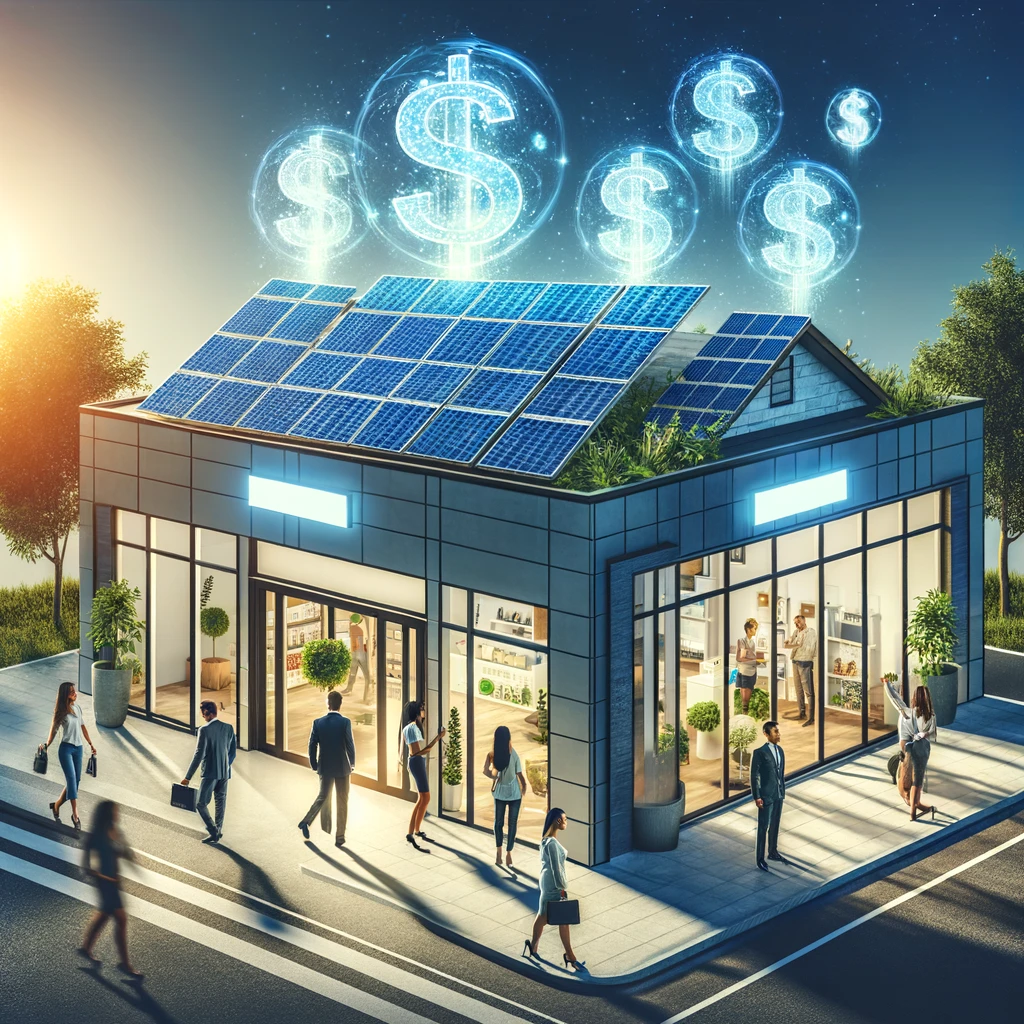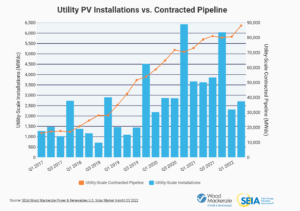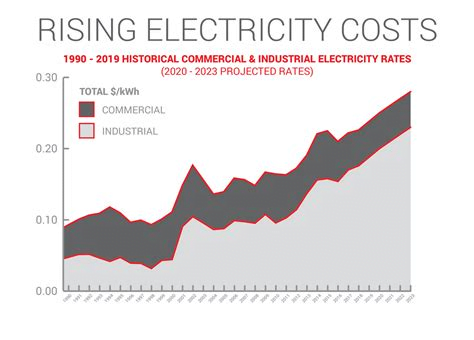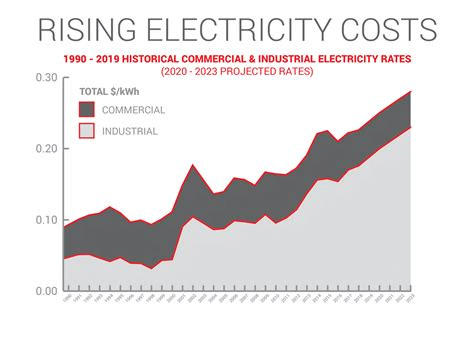- HOW IS SOLAR ENERGY HARNESSED? There are three primary ways to use the light and heat of the sun. First, photovoltaics (PV) directly converts energy from sunlight into electricity. Second, concentrating solar power (CSP) plants use mirrors to concentrate heat from the sun to drive utility scale, electric turbines. And third, heating and cooling systems collect thermal energy from the sun and use the heat to provide hot water and air conditioning.
- HOW MUCH SOLAR EXISTS TODAY? There are more than 8,300 utility scale solar projects in the United States capable of generating over 67 gigawatts of solar electricity. That’s enough to power 12.7 million homes and offset 76 million metric tons of CO2 emissions.
- CAN SOLAR SAVE ME MONEY? Yes! Nationwide, large utility companies are turning to solar in order to shift away from carbon resources and make renewable energy more accessible to customers. Solar relieves stress and strain on the electric grid and reduces costs for utilities. Those savings are then passed down to customers.
- DO SOLAR PROJECTS CREATE SOUND? No, solar farms do not create sound that’s audible outside the project. Additionally, solar projects use minimal water and do not generate any type of air, water or ground pollution. In 2018, a new solar project was installed every 100 seconds.
- SOLAR ENERGY INDUSTRIES ASSOCIATION DO SOLAR PANELS CREATE GLARE? No, solar panels are designed to absorb sunlight and not reflect it.
- HOW ARE SOLAR PROJECT SITES IDENTIFIED? A number of factors are considered to identify a suitable solar project location. These include close proximity to the grid transmission network (power lines), ease of constructability, transportation access, low environmental impacts, and flat land.
- CAN SOLAR PROJECTS BE LOCATED OUT OF SIGHT OF HOMES AND BUSINESSES? Developers take great care in locating and designing projects to minimize impacts to residences, and there are several factors that are important to siting a solar farm effectively. If designed correctly, solar farms will not change the look or feel of a community and there are many projects that coexist with residential areas. At only 8-12 feet high, solar arrays have a low profile and landscaping is often used to shield the project from view.
- DOES THE SOLAR INDUSTRY CREATE JOBS? As of 2018, over 200,000 solarrelated jobs were created in North America. That’s nearly a quarter of a million families who help support the growth of clean energy nationwide. Additionally, construction and operations jobs in local communities generate increased business for local services like hotels and restaurants. 12.7 million homes could be powered by the current installed solar capacity in the
- U.S. SOLAR ENERGY INDUSTRIES ASSOCIATION CAN SOLAR PROJECTS HELP SAVE WATER? Yes, in areas of the country where water resources are scarce, solar helps reduce the amount of water utilities need to generate electricity.
- WHY BUILD A SOLAR PROJECT ON FARM LANDS, WON’T THAT BE LAND OUT OF PRODUCTION? Solar projects complement agriculture by helping farmers manage commodity price shifts, make money, and protect their way of life. Solar lease agreements include a binding commitment that project owners will return land to its prior use once a project has completed its useful life. Additionally, native grasses or wildflowers are typically planted that improve soil and water quality.
- ARE THERE ANY COMMUNITY BENEFITS TO HOSTING A SOLAR PROJECT? Yes, solar projects lower electricity bills, provide economic growth and increase energy independence for communities. A typical solar project will generate 30 years of new steady tax revenue to fund schools and other community services while helping keep taxes low for homeowners.
thanks to Solar Energy Industries Association: www.seia.org for the information
For more information on what commercial solar can do for your business .
Contact us below.





 With the ever increasing costs for electric power, the high price of oil and the growing concern for the environment, many businesses are finding alternative sources of energy. Solar renewable energy is a sustainable choice and one that can be used in many commercial situations.
With the ever increasing costs for electric power, the high price of oil and the growing concern for the environment, many businesses are finding alternative sources of energy. Solar renewable energy is a sustainable choice and one that can be used in many commercial situations.